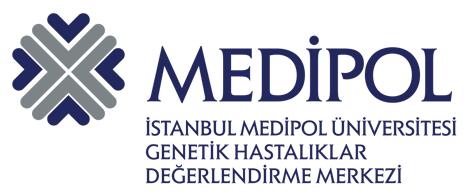Breast Ovarian Cancer (BRCA1 & BRCA2)
Familial Breast Ovarian Cancer Panel
Breast/ovarian cancer is among the most common types of cancer in the world. It’s known that 5-10% of breast cancer cases are familial. Many genes have been identified that are involved in hereditary predisposition to breast and/or ovarian cancer. The most important of these genes are BRCA1 and BRCA2 genes responsible for HBOC (Hereditary Breast and Ovarian Cancer) syndrome. Mutations in BRCA1 and BRCA 2 genes are the most important causes of hereditary breast and ovarian cancers. Approximately 46-87% of these cancers are caused by mutations in these two genes.
What genetic tests are associated with breast and ovarian cancer?
- BRCA1 and 2 Whole Gene Sequencing
- BRCA1 and 2 Deletion / Duplication Test: Deletion / Duplication screening is performed with the MLPA method for the analysis of these mutations.
- Examination of other genes associated with Breast / Ovarian Cancer: With the Next Generation Sequencing Method (NGS), other susceptibility genes associated with breast and/or ovarian cancer are screened.
Who should have a genetic test?
- Those diagnosed with breast cancer at the age of 50 or older
- Those diagnosed with ovarian cancer
- Those with multiple primary cancer foci in both breasts or one breast
- Men diagnosed with breast cancer
- Those diagnosed with triple-negative (estrogen receptor, progesterone receptor, and her2/neu negativity) breast cancer, especially before the age of 60
- Those diagnosed with pancreatic and prostate cancer along with breast or ovarian cancer
- Those with two or more relatives who are 50 years or younger with a diagnosis of breast cancer
- Those whose family has a mutation in BRCA1 or BRCA2 genes
Why do we recommend breast and ovarian cancer genetic tests (brca1 / 2)? What is its benefit for the patient?
- In individuals with mutations, whether other family members carry the mutation or not, it is possible to provide more accurate information about the risk of cancer.
- Individuals with a diagnosis of breast / ovarian Ca with mutations;
- It provides a more accurate surgical procedure.
- Prophylactic (conservative) surgery may be recommended to reduce the risk of recurrence and cancer in other tissues and organs.
- In patients who will be given chemotherapy, it is possible to choose target-oriented drugs.
- Individuals with the mutation have a 50% probability of passing the mutation to their children. To prevent this, pregnancy can be recommended with the selected embryo (Preimplantation Genetic Diagnosis).
Genetic counseling in breast and ovarian cancer
BRCA1 and BRCA2 are inherited in an autosomal dominant manner. The vast majority of individuals with the BRCA1 or BRCA2 pathogenic variant inherited it from one parent. While many people have a family history of cancer, the majority of breast and ovarian cancers are not actually due to hereditary causes. Cancers that occur due to genetic differences in the genetic makeup of the parents, called ‘mutations’, that can be passed on to later generations, namely their children, are called ‘hereditary cancers’. Genetic counseling is recommended for inherited cancer syndromes before and after genetic testing. Detection of hereditary gene mutations is possible by analyzing the tissue and blood samples taken from the person with genetic techniques. It is recommended that these test results be obtained with genetic counseling.

